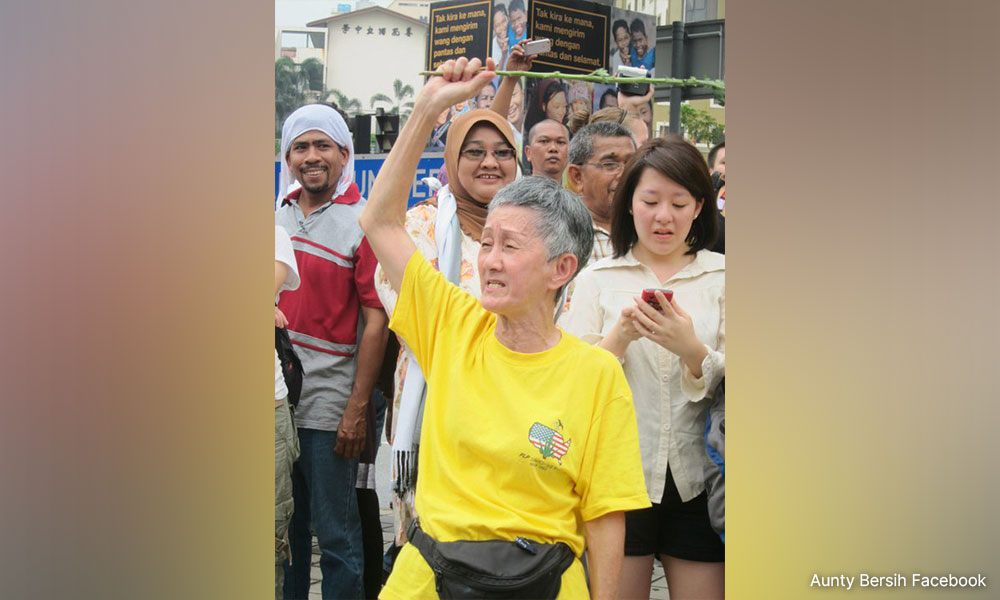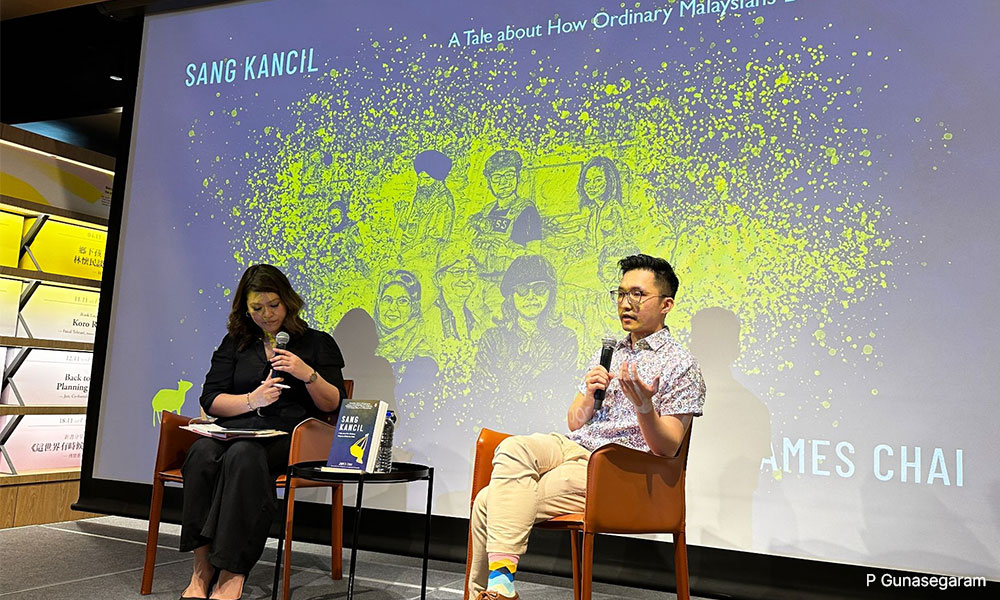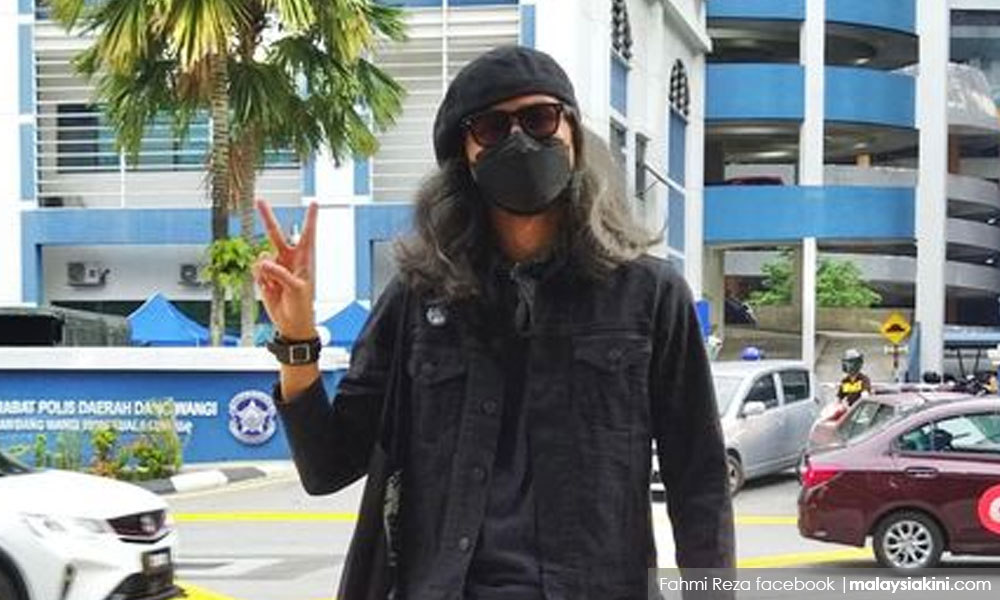BOOK REVIEW | ‘Sang Kancil’ is unlike any book I have read on Malaysia and Malaysians - it is a book of hope, deliverance, and how all of us can, by small acts, make badly needed change happen.
It urges you to do exactly that - believe in something and get involved.
James Chai uses a clever animal in folklore, the mousedeer, to tie the title to the underdogs and writes a book about them - ordinary Malaysians who made a difference by being smart about caring and kindness.
There are seven tales in all, with nice twists and turns that make good, quick reading in Chai’s straight direct trenchant style.
He ends it by drawing up seven easy principles we can live by to make our own little contribution to the world we live in - and leave it a little better than before.
Chai, also a Malaysiakini columnist, tells how seven ordinary Malaysians have helped make significant differences in perplexing, difficult problems and contribute to the collective task of a better world where the underdog - the common person - wins.

But it’s not any ordinary tale of how everyday people like us transformed things. It goes into their lives, backgrounds, what made them do what they did, and other details you usually do not find in most such books.
Crucially, he tells about little snippets of research which support the view that underdogs can and do win and why they do.
Sometimes the findings are truly amazing, like how evidence indicates that public demonstrations by a relative few can topple a government. This comes in the first tale.
It is the story of Auntie Bersih (Anne Ooi), a frail old lady who became the face of Bersih’s rallies which crusaded for fair and democratic elections through public action including a series of demonstrations, mainly in Kuala Lumpur, eventually involving hundreds of thousands, the biggest mass demonstrations in the country.
Aunty Bersih was in the midst of all of them, taunting the police to arrest her and getting away with many things younger people could not because of her age.

A dramatic picture of her against the backdrop of riot police helped make her the poster girl of the Bersih demonstrations.
As typical of all the seven tales that Chai tells, there is much background to the whole episode.
The interesting detail from a study that Chai quoted was this - if popular peak participation against the government reached 3.5 percent of the population, the chances of toppling an unpopular government were nearly 90 percent; one to 3.5 percent over 60 percent; 0.25 percent to one percent over 45 percent; 0.06 percent to 0.25 percent over 45 percent and so on.
The fourth Bersih rally to commemorate Independence Day on Aug 31, 2015, garnered an estimated 500,000 people, or over 1.6 percent of the population, smashing decisively through the one percent barrier and giving a 61 percent chance of overthrowing the government.
Less than three years later on May 9, 2018, Umno/BN fell after 61 years at the helm.
It's impossible to tell how much Auntie Bersih counted in that process but there can be no denying that her presence and subsequent elevation as a symbol of the protest helped galvanise public support for Bersih and public opinion against the government.
The other stories are just as stirring, heart-warming tales of hope, achievement, and eventual success, against all odds.
Each of them is impressive and has a strong tie back to research and academic findings that are relevant.
Overcoming the odds
The second relates how a mother of two, a doctor, overcame all odds to win what was the de facto Nobel prize for cancer research, fighting prejudice and bullying to be eventually recognised for her work involving genome mapping to fight the dreaded disease. Chai takes you through a little genetics lesson to tell it all.
Dr Serena Nik-Zainal, whose doctor father built the country’s first cardiological unit in 1977 from a tiny storeroom in today’s National Heart Institute, was presented the Josef Steiner Award at the University of Bern, the first woman to be awarded the prize.

Then there’s the story of the auditor who secretly taped a conversation involving the possible cover-up of parts of the auditor-general’s report on the infamous 1MDB scandal during Najib Abdul Razak’s time as prime minister.
The reader will be treated to an account of the history of 1MDB here.
I was also spellbound by the story of activist-cum-artist Fahmi Reza, who is famous for the clown caricature of the disgraced Najib who languishes in jail. He faced multiple charges, all of which were withdrawn in 2018 after Najib lost the elections.

Fahmi went to the US to study engineering under a Telekom Malaysia scholarship but became a graphic artist instead.
He now barely ekes out a living because he does his art only for social and altruistic purposes, getting little in return.
And there is the story of a retired civil servant who enlisted help from beyond the circle of people he knew to convince the government to abandon a massive dam, the Baram Dam, where an area half the size of Singapore would have been inundated.
The last two focus on disaster - the first is flood relief by members of the Sikh community who enlisted the help of everyone who could be useful in their heroic effort and empowered them to distribute food to the victims of the December 2021 floods. Government efforts failed in many affected areas.

The tales of these Malaysians end with a gutsy story of a Pulitzer prize-winning photographer who refused to leave Afghanistan as the Taliban took back control of the nation in late 2021, staying on to document it for posterity as he did for other events.
In the final chapter, Chai explains how you can get involved in the process of change, explaining it under seven themes.
Find out for yourself what these are by buying the book and reading it - it’s worth the time, money, and effort. I was fascinated, enthralled, and educated.
Stories that inspire
At the official launch of the book on Sunday, Chai explained why he wrote the book: “Politics is boring, most people are not interested but if you tell a story then people may read about it and act accordingly. Ripples can create change. And ripples come through acts of individuals.”
He sees Malaysia as a problem of (lack of) self-belief and that one should think of Malaysia as an underdog country with the ingredients for success if the right actions are taken.
He does not believe that you must wait for politicians to take the first move. Do what you can and will now.
Chai considers himself an optimist but being an optimist requires effort, he added. Just because it (the change of government) did not work out exactly the way you want to, you don’t give up - the process of change has been set in motion.
As he says in the book: “The tactic of the underdog is in the power of numbers”.
That’s pretty cogent, mature thinking coming from a thirty-year-old, and full of hope and optimism, backed up in the book by anecdote and evidence.
If there are more like him - and going by the attendance at the book launch there are - all hope is not lost. - Mkini
P GUNASEGARAM is a columnist for Malaysiakini.
The views expressed here are those of the author/contributor and do not necessarily represent the views of MMKtT.




No comments:
Post a Comment
Note: Only a member of this blog may post a comment.